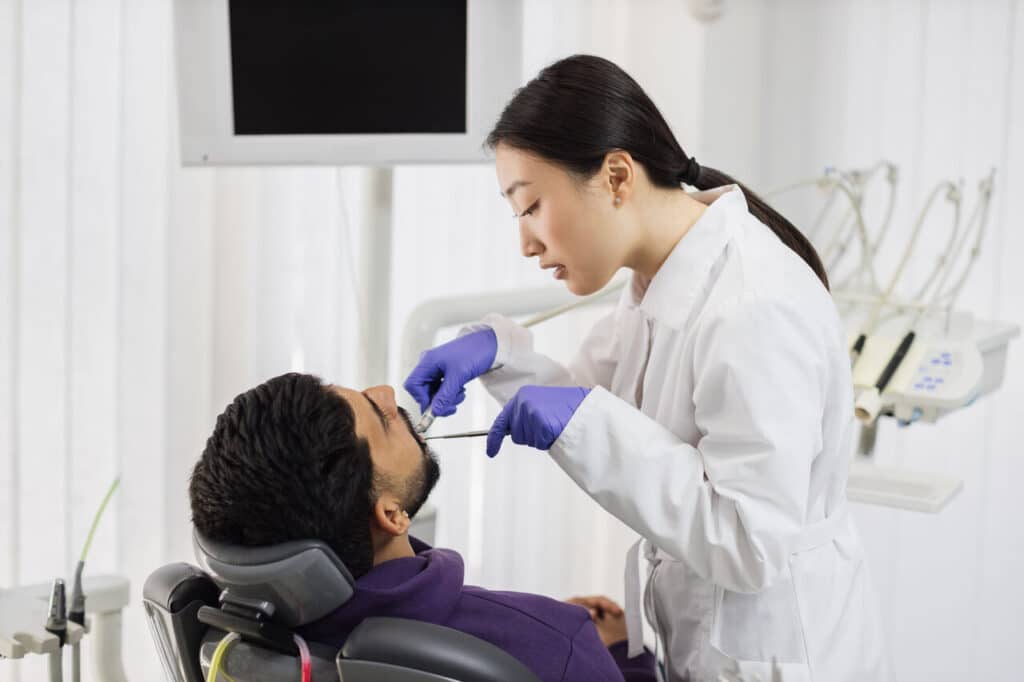As a family dental care practice based in Pickering, ON, our team is committed to providing a comfortable and stress-free environment for all our patients. We understand that dental anxiety is a common concern and can sometimes act as a barrier to receiving the necessary dental care. To help alleviate dental anxiety and create a relaxing experience, we offer sedation dentistry – a powerful approach that can improve the mood and overall well-being of patients during dental treatments.
Sedation dentistry encompasses various methods and levels of sedation designed to help patients feel calmer and more comfortable during dental procedures. From mild sedation to deep sedation, these techniques cater to a wide range of patients, including those with dental phobias, sensitive teeth, or those undergoing lengthy or complex treatments.
In this comprehensive guide, we will discuss the benefits of sedation dentistry, providing you with a better understanding of how sedation can make your dental visits more pleasant and enjoyable. We will also delve into the various types of sedation available, covering the techniques involved and their suitability for patients of all ages. By addressing any concerns or misconceptions about sedation dentistry, our goal is to help you feel confident in choosing this valuable dental service as part of your overall oral health journey.
The Benefits of Sedation Dentistry
Sedation dentistry has transformed the dental experience for countless patients, offering ease and comfort during treatments. Here, we outline some of the key benefits:
1. Alleviation of Anxiety and Fear
Sedation dentistry is an ideal option for addressing dental phobias and anxiety. By inducing a state of calm and relaxation, sedation allows patients to overcome their fears and feel at ease during dental procedures.
2. Pain Management
Sedation techniques help to minimize discomfort by numbing the treated area or inducing a state of sleepiness, allowing patients to undergo dental procedures with minimal or no pain.
3. Enhanced Patient Cooperation
Sedation dentistry can benefit those who struggle with sitting still, have sensitive teeth, or experience difficulty in staying calm during dental treatments. By inducing relaxation, sedation makes the process smoother and more manageable for both patients and dental professionals.
4. Increased Efficiency
Sedation can expedite dental treatments for those who require multiple or complex procedures. Since patients are more relaxed under sedation, dentists can work quickly and efficiently, often completing several treatments in a single appointment.
Understanding the Different Types of Sedation
There are various types of sedation available in dentistry, each designed to cater to the unique needs of patients. They include:
1. Nitrous Oxide (Laughing Gas)
Nitrous oxide, commonly known as laughing gas, is a mild form of sedation often used for patients with dental anxiety or those undergoing simple dental procedures. Patients inhale the gas through a mask placed over their nose, which induces a relaxed, euphoric feeling. The effects of nitrous oxide are easily managed and quickly reversible, allowing patients to return to their daily activities shortly after the treatment.
2. Oral Sedation
Oral sedation involves taking a sedative pill prior to the dental procedure, which induces a moderate level of relaxation and drowsiness. Patients remain conscious throughout the process, making it ideal for more complex treatments or patients with heightened dental anxiety. However, patients may be too groggy to drive themselves home, so having a companion present is advised.
3. Intravenous (IV) Sedation
Intravenous sedation is administered via an injection into a vein, offering a deeper state of relaxation compared to oral sedation. IV sedation allows dentists to adjust the level of sedation throughout the procedure to maintain patient comfort. Though patients remain conscious and able to respond to commands, they may experience slight amnesia, recalling little to no details about the procedure afterwards.
4. General Anesthesia
General anesthesia is a more comprehensive method of sedation, placing patients in a fully unconscious state. This type of sedation is typically reserved for patients undergoing extensive surgical procedures or experiencing extreme dental phobias. General anesthesia requires close monitoring by an anesthesia specialist and may have a longer recovery period.
Determining the Right Sedation Method for You
Your dentist will consult with you to determine the most appropriate sedation method, considering factors such as:
1. Your Level of Anxiety
Your dentist will assess your dental anxiety and decide on the suitable level of sedation to help you feel at ease during treatment.
2. The Type of Procedure
The complexity and length of the dental procedure may influence the choice of sedation, with more intricate treatments requiring deeper sedation levels.
3. Your Medical History
Your dentist will review your medical history and discuss any existing health conditions, medications, or allergies to ensure the chosen sedation method is both safe and effective for you.
Conclusion
Sedation dentistry has revolutionized the dental experience for many patients, offering comfort and relaxation during treatments. By understanding the various types of sedation available and collaborating with your dentist to identify the most suitable method, you can embark on a more positive and stress-free dental journey. Our compassionate and skilled dental team at Pickering Dental Services is here to answer your questions and guide you through a personalized sedation dentistry experience.
Contact us today to schedule a consultation and discover the benefits of a comfortable, anxiety-free approach to dental care.



